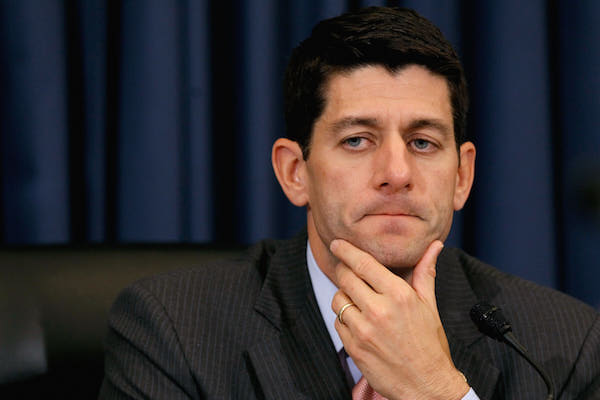
Rep. Paul Ryan (R–WI) pretends to think about your birthday present, but you’re getting an iTunes gift card.
If you want to feel superior and depressed at the same time, read this New York Times story on the budget plan House Republicans submitted last week. The good news is that it balances the federal budget by 2025. The bad news is that it does so by assuming $147 billion in additional revenue from the “macroeconomic effect” of the budget itself. It also repeals the Affordable Care Act and the taxes that support it, but still includes $1 trillion in revenue from those taxes. Finally, it counts $1 trillion in savings from unspecified cuts to social welfare programs. Don’t worry, though: there’s a $40 billion increase in defense spending next year, couched as “emergency war spending” so as not to violate the 2011 Budget Control Act. We’ll find the war later. As Rep. Rob Woodall (R–GA) of the House Budget Committee put it, “A budget is a moral document; it talks about where your values are.”

